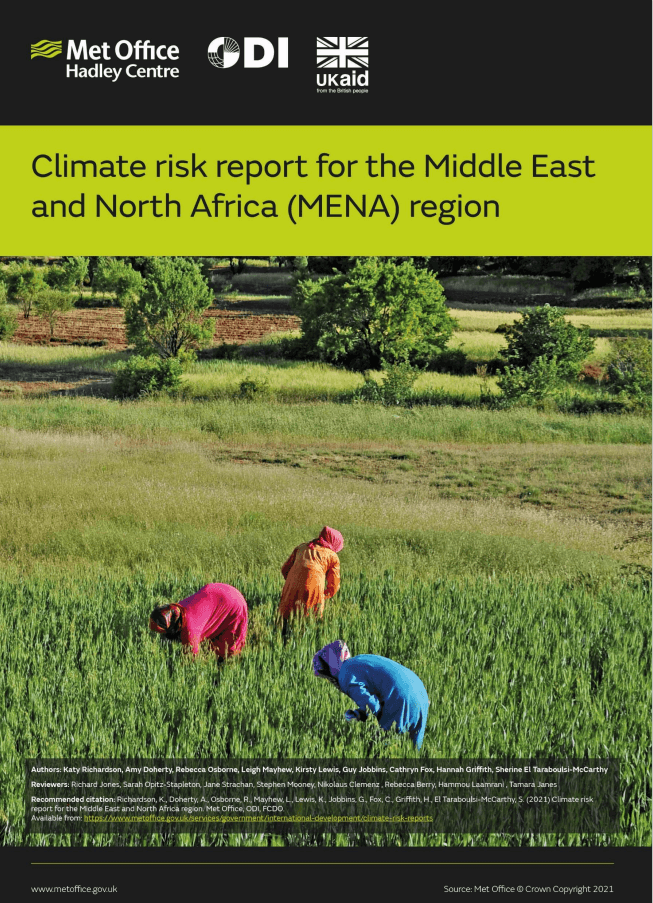The MENA Climate Risk Report provides a detailed analysis of the Middle East and North Africa's (MENA) vulnerability to climate change, outlining key risks, socio-economic implications, and regional disparities in resilience. The report highlights that climate change is already affecting the region, with temperatures rising by 1-1.5°C above pre-industrial levels, and projections indicating further warming, especially during the hottest months. While there is uncertainty about future rainfall patterns, the combination of increasing temperatures and existing arid conditions will exacerbate water scarcity, impact food production, and heighten risks to human health and infrastructure. The MENA region is the most water-stressed in the world, with unsustainable groundwater extraction, limited rainfall, and high evaporation rates worsening the crisis. This threatens agriculture, which is already constrained by limited arable land, high dependency on food imports, and increased exposure to heat stress. Rising sea levels also jeopardize coastal cities and ecosystems, leading to salinization of agricultural lands and increased risks of extreme weather events.
The report emphasizes that climate risks in the MENA region are compounded by socio-economic factors, including conflicts, weak governance, rapid urbanization, and economic inequalities. Many countries, particularly those facing political instability such as Yemen, Syria, and Libya, have limited capacity to implement climate adaptation measures. Urban areas, where the majority of the population resides, will face rising temperatures, heat stress, and strain on infrastructure, including electricity and water systems. Additionally, coastal and marine environments are under threat, with fisheries and biodiversity at risk due to rising ocean temperatures, pollution, and overfishing. The report calls for urgent policy interventions, including improving water management, investing in renewable energy, developing sustainable agricultural practices, and enhancing regional cooperation to tackle transboundary climate challenges. Without immediate action, the combined effects of climate change and socio-economic vulnerabilities will further destabilize the region, exacerbating migration, food insecurity, and economic hardships.





